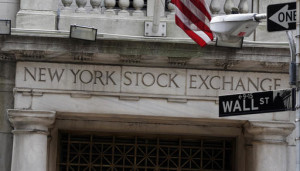The government expects to hit its $100-billion export revenue target by 2020, or later than it initially forecasted, as Philippine merchandise exports had just started to recover in the third quarter of 2016.
This was according to the Philippine Exporters Confederation Inc., which remained hopeful that the country’s latest export performance would signal the start of the local export recovery despite a slower global economic growth.
The Department of Trade and Industry had earlier targeted to breach the $100-billion export revenue target by 2017. But Philippine merchandise exports recovered only in September this year, finally ending 17 consecutive months of decline. In October, exports rose by 3.7 percent.
Still, local exporters are pinning their hopes on the country’s sustained economic growth and on government’s programs to fuel the sustained recovery of the export sector, according to Philexport president Sergio R. Ortiz-Luis Jr.
Specifically, Philexport and the Export Development Council will aggressively push next year an industry reform agenda that will include maximizing the benefits of free trade agreements (FTAs); intensifying campaign against corruption; facilitating infrastructure development, and providing capacity building measures for micro, small and medium sized enterprises (MSMEs).
The government and the various export industry groups expect MSMEs to play a key role sustaining the growth of the export sector.
According to Ortiz-Luis, they have been advocating and promoting a strong and sustainable MSME sector “in a way that they can effectively and efficiently participate in the regional and global production networks and compete with the rest of the world.”
“From many indications, we would like to believe that this is the golden age of MSMEs,” Ortiz-Luis said in a statement on Thursday.
With the right environment, MSMEs can be expected to contribute more to the local economy. But key to making MSMEs a more significant contributor to economic growth is the removal of non-tariff barriers that prevent exporters from entering new territories or expanding their presence in markets where they are present, he said.
Also important is the provision of access to additional funds and financing options, Ortiz-Luis said.
The export group chief lauded the pronouncement of Trade Secretary Ramon M. Lopez that P1 billion in additional funding would be made available to MSMEs through a number of microfinance institutions.
Crucial also to creating a conducive environment for MSMEs would be the implementation of existing labor laws to ensure workers’ security of tenure as a middle ground to stopping illegal hiring practice, as well as the passage of the Comprehensive Tax Reform Act, Ease of Doing Business Act, and amendments to the implementing rules and regulation (IRR) of the Magna Carta for MSMEs.


